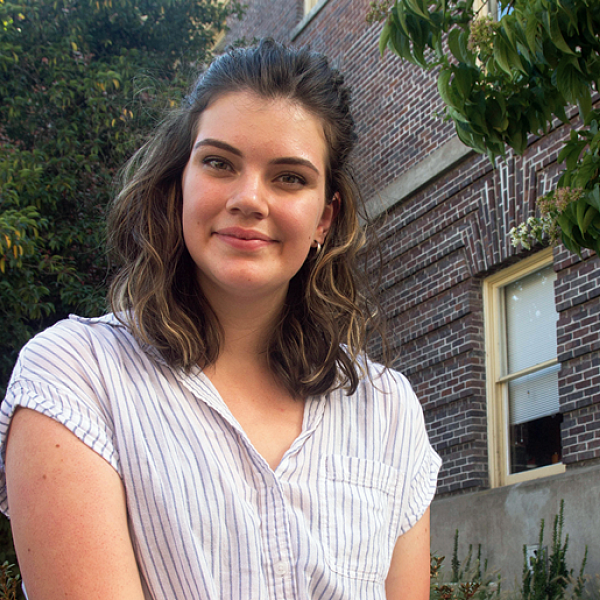
By Becky Hoag and Meg Rodgers
Theses aren’t just for graduate students. Many UO School of Journalism and Communication undergrads write theses for the SOJC Honors Program, for Clark’s Honors College or just to gain research experience. Any of them can tell you that thesis-writing takes a lot of work and can be quite daunting.
Wondering how you would even get started on it?
SOJC media studies alum Meg Rodgers ’18 totally understands how you feel. But she made it happen! She spent her senior year writing an undergrad thesis for the Honors College about TV anti-heroines that was selected for the 2018 UO Undergraduate Research Symposium.
Here are a few lessons she learned along the way:
1. Make use of your thesis advisor.
If you don’t have one assigned to you, find one and make that connection as soon as you can.
“They are the experts in their field, and you are learning how to become an expert,” Rodgers said.
She said her advisor, Assistant Professor Erin Hanna, helped her break down her project into doable steps and approach the research process in a smart manner.
2. Dive into the research.
Collect as much knowledge as you can. Even if some of the sources don’t end up in your final reference list, they will all help develop your overall understanding of the topic.
Rodgers found that about one-third of her process was research, one-third was writing and one-third was editing. It might be surprising and a bit nerve-wracking not to write anything down for the first part of the thesis process, but that’s normal. If you start writing too soon, you might find yourself making more assumptions about what you will find, rather than writing about what you actually found.
3. Start citing sources early.
You’ll thank yourself later. Programs like Mendeley or Zotero can help with this. Make sure you know what citation style to use.
4. Break down your thesis into workable sections.
Looking at the whole thing at once can be overwhelming. What are the individual points you want to cover in your paper? Make a list and start checking them off one at a time.
5. Mentally prepare yourself for lots of editing.
Try not to take it personally when your paper gets torn apart. It just means that it’s getting better. Trust the process and be grateful for feedback.
You can do it! And all the work’s definitely worth it. Rodgers found the thesis-writing process helped her learn about her strengths and weaknesses as a researcher and what work environments are best for her. Sometimes the more challenging endeavors can be the most rewarding too.
Becky Hoag is a senior double-majoring in journalism and environmental science (with a marine focus). This is her second year writing for the SOJC Communication Office. This past summer, she worked as an intern at the KQED science desk in San Francisco, producing content for the new program about climate change, “This Moment on Earth.” She is also a science writer for The Daily Emerald and the student-run environmental magazine Envision Magazine, and a web designer/researcher for marine conservation outreach organization Ocean Everblue. She wants to become an environmental/scientific journalist. You can view her work at beckyhoag.com.
